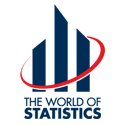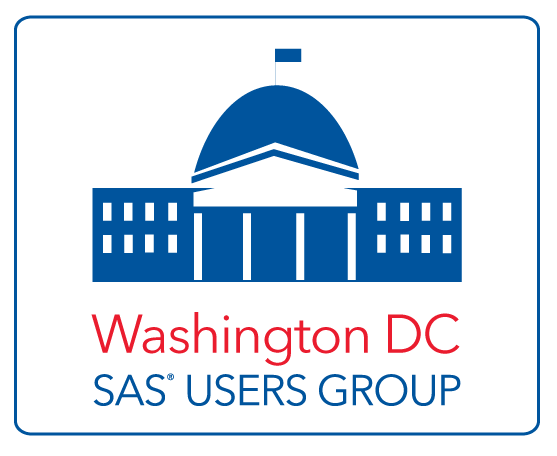March 2005
Contents:
- WSS Short Course
- Second Conference on Information and Entropy Econometrics
- Education Announcements:
- Spring Statistical Symposium (March 22-25, 2005)
- SIGSTAT Topics for 2005
- Short Courses
- Seminars
- Employment Opportunities
- Note From The WSS NEWS Editor
- WSS People
- PDF Versions:
(Requires Adobe Acrobat Reader)
Newsletter
Area Meetings and Courses
WSS Short Course
The WSS is offering a short course providing an introduction and appraisal of the recent developments in sample survey methods on April 20, 2005. Topics include: survey design and inferential issues, analysis of survey data with emphasis on graphing data and resampling methods, design and estimation in multiple frame surveys, and small area estimation. Registration is due by April 8, 2005. Pleae use this linkfor further details.
Return to topSpring Statistical Symposium
The American Statistical Association and the University of Maryland Statistics Consortium will co-sponsor the Spring Statistical in College Park, Maryland, March 22-25, 2005. The symposium is a week-long series of short course offerings for professional statisticians and students of statistics. Among the courses to be offered are Practical Data Mining, Longitudinal and Incomplete Data, and Latent Class Analysis.
For more information and a complete listing of courses, visit the Spring Statistical Symposium web site at: www.amstat.org/education/ls2005/
Return to top
Second Conference on Information and Entropy Econometrics
Theory, Method, and Applications in Honor of George Judge
September 23-25, 2005
American University, Washington DC
Conference Objectives: This conference will (i) study and explore Information-Theoretic (IT) solutions for linear and nonlinear estimation and inference problems, (ii) facilitate the exchange of research ideas in that field, (iii) promote collaboration among researchers from different disciplines, and (iv) highlight the major trends in Information and Entropy Econometrics.
The Second IEE Conference will concentrate on the most recent (theoretical and applied) research in linear and non-linear IT and entropic procedures (Bayesian and non- Bayesian), with emphasis on modeling and measuring information. In addition, the conference will deal with the interpretations and meaning of the solutions to IT estimation and inference (e.g., statistical meaning, complexity and efficiency as well as informational meaning). Both theory and innovative applied papers will be included. Conference topics include theory and methods and applications in various fields. The deadline for submitting a paper for presentation is April 30, 2005. The registration deadline is to be determined.
Program and Advisory Committee: Anil Bera, U. Illinois; Bertrand Clarke, UBC; Amos Golan, American U. (Chair); Alastair Hall, NCState; Yuichi Kitamura, Yale; Essie Maasoumi, SMU; Eric Renault, UNC at Chapel Hill; Ehsan Soofi, U. Wisconsin-Milwaukee; Michael Stutzer, U. Colorado-Boulder; Arnold Zellner, U. Chicago.
For additional and updated information about the conference, please look at the conference Web page at http://www.american.edu/cas/econ/faculty/golan/conference2.htm or contact Amos Golan at agolan@american.edu.
Return to topSIGSTAT Topics for 2005
February 9, 2005 - Graphics with R, Speaker: Mike Fleming
The ease of making graphs in R is one of its strongest attractions. Some examples of making graphs were discussed in Part I. In this second part, the topics of making graphs which are annotated with equations, of putting multiple graphs on a single page, and of using polygons will be discussed.
March 9, 2005 - PROC UCM - Unobserved Component Models, Speaker: Charlie Hallahan
Unobserved Component Models are very general time series models that incorporate trends, seasonality, cycles, regression effects, and autoregressive effects. Trends and seasonality can be allowed to change randomly. UCMs can be considered as generalizations of ARIMA and smoothing models. The basics of UCMs will be covered as well as some examples. PROC UCM is new in SAS/ETS version 9.
April 20, 2005 - PROC ROBUSTREG - Robust Regression Method, Speaker: Charlie Hallahan
The experimental ROBUSTREG procedure in SAS/STAT version 9 provides resistant (stable) results in the presence of outliers by limiting the influence of outliers. ROBUSTREG provides four robust methods: M estimation by Huber (1973), Least Trimmed Squares (LTS) estimation by Rousseeuw (1984), S estimation by Rousseeuw and Yohai (1984), and MM estimation by Yohai (1987).
May 11, 2005 - PROC QLIM - Qualitative and Limited Dependent Variable Models, Speaker: Charlie Hallahan
The QLIM (Qualitative ans Limited dependent variable Model) procedure analyzes univariate and multivariate limited dependent variable models where dependent variables take discrete values or dependent variables are observed only in a limited range of values. This procedure includes logit, probit, tobit, and general simultaneous equations models. The simultaneous equations model can contain discrete choice and limited endogenous variables as well as continuous endogenous variables.
SIGSTAT is the Special Interest Group in Statistics for the CPCUG, the Capital PC User Group, and WINFORMS, the Washington Institute for Operations Research Service and Management Science.
All meetings are in Room S3031 (Food Safety and Nutrition Room), 1800 M St, NW from 12:30 to 1:30. Enter the South Tower and take the elevator to the 3rd floor to check in at the guard's desk.
First-time attendees should contact Charlie Hallahan, 202-694-5051, hallahan@ers.usda.gov and leave their name. Directions to the building and many links of statistical interest can be found at the SIGSTAT website, www.cpcug.org/user/sigstat/
Return to topNote From The WSS NEWS Editor
Items for publication in the May WSS NEWS should be submitted no later than March 15, 2005. Items for publication in the May WSS NEWS should be submitted as soon as possible. The May WSS NEWS will be sent to the printer and the electronic communication committee for dissemination on March 31. The editor will be in Germany during April. E-mail items to Feil at michael.feil@usda.gov.
Return to topClick here to see the WSS Board Listing (pdf)
Return to top






